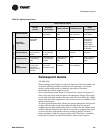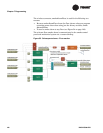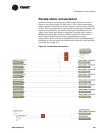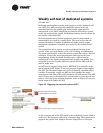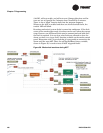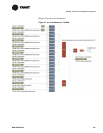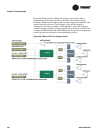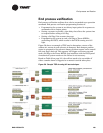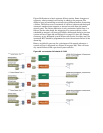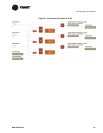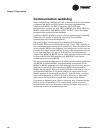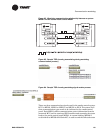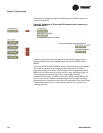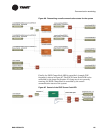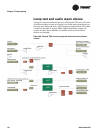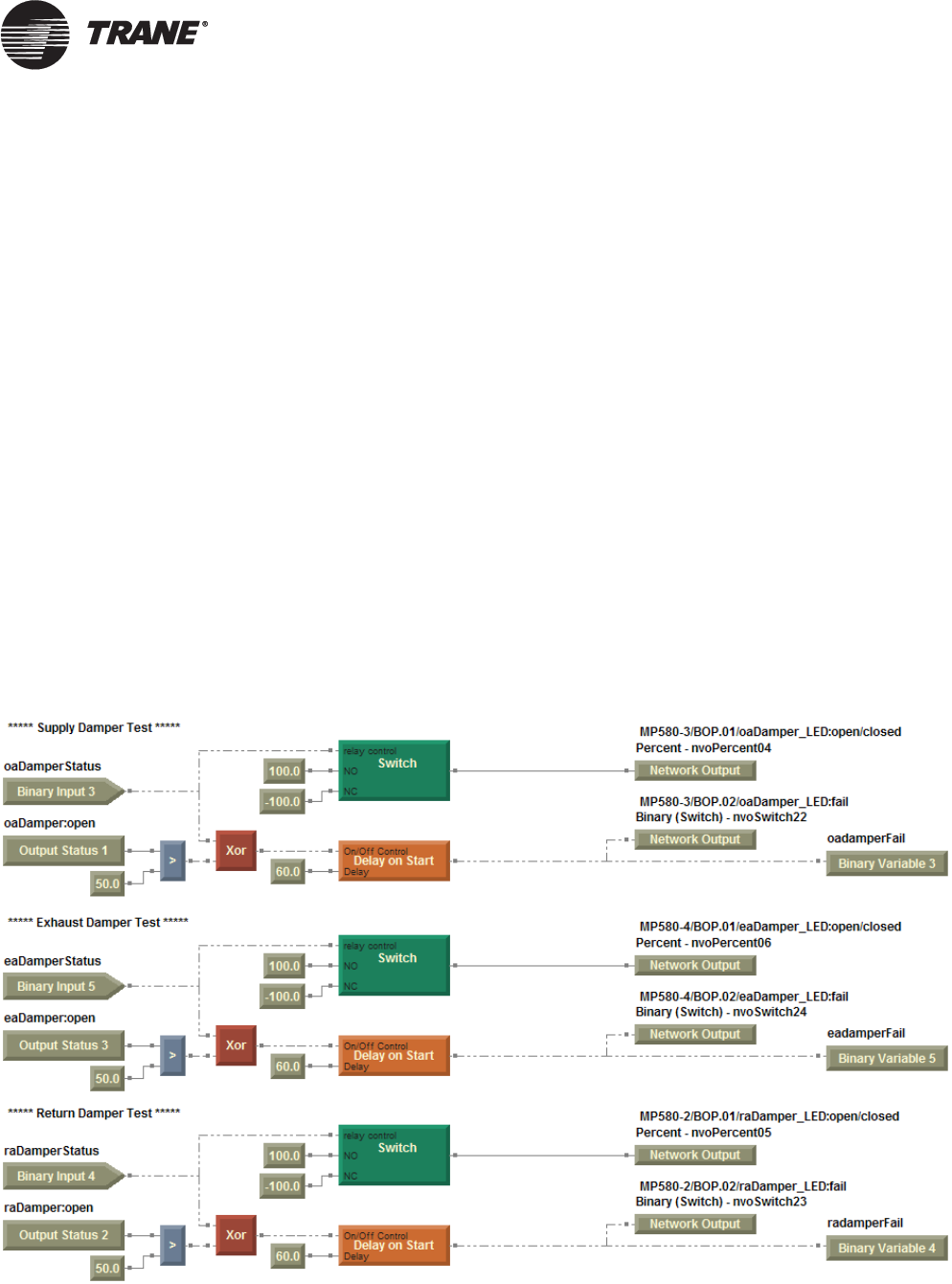
End process verification
BAS-APG001-EN 109
End process verification
End process verification confirms that a device responded to an operation
command. End process verification programming consists of:
• Programming the system to test binary input points for responses to
commands sent to output points
• Setting a counter to provide a time delay that allows the system time
to respond before setting a fail flag
• Setting a fail flag if the counter times out
• Programming the system to send a fail flag to Tracer MP581s
controlling the FSCS, which results in the FSCS turning on a fail
light
Figure 59 shows an example of TGP used to determine a status of the
outdoor air, return air, and exhaust air dampers. Each damper position
status is compared to the relevant damper position request and a normal/
fail state flag is derived. This segment will trigger an alarm event and
send a fail flag to the Tracer MP581 that interfaces with the FSCS panel.
A mechanical system reaction to the failure is not necessary.
Based on Table 28 on page 101, the self-test needs to be overridden if
either a smoke alarm is triggered or a manual override takes place.
Figure 59. Sample TGP showing fail test technique



